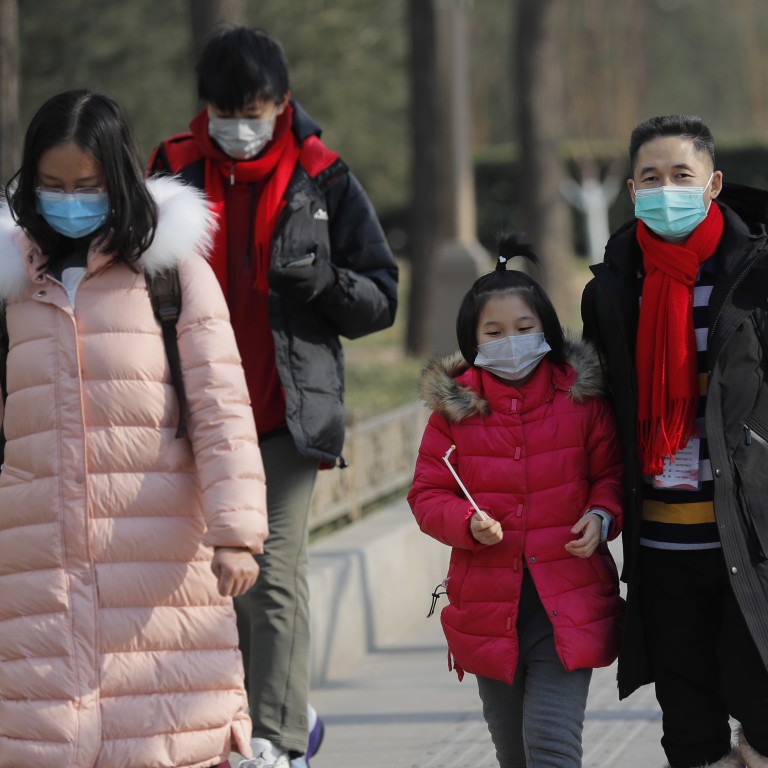
Meet the doctors working round the clock to battle China’s coronavirus outbreak
- Specialist in Shanghai says 2019-nCoV could be the most contagious disease she has ever faced
- But doctor in Guangzhou says ‘it’s not as bad as Sars’
“We were prepared to deal with them, but this time the Wuhan virus is more serious than any of them. It’s more infectious and more deadly than I thought just last week.”
Helen, who works in the fever clinic, said that “first-tier prevention” measures for medical staff – which require doctors to wear isolation gowns and surgical masks – were introduced on Monday, as they have been at other hospitals in the city.
During her latest 24-hour shift, which ended on Tuesday, Helen said she saw more than 100 patients – almost twice as many as on a regular day – as all staff were on high alert and any patients with even a slightly raised temperature were being referred to her clinic for further checks.
The doctor said she had eaten only one bowl of instant noodles during her shift and had almost no sleep.
“There are only three doctors in the fever clinic. Our hospital recently allocated some doctors from the emergency and internal medicine department to share the workload but we’re still short on manpower,” she said.
“My husband and I had planned to take our son back to our hometown outside Shanghai to celebrate the Spring Festival [Lunar New Year holiday], but we got a refund on the train tickets a few days ago after my hospital told all medical staff to cancel their holiday arrangements.”
In Wuhan itself, doctors at fever clinics are facing long queues of possible patients, with many having to wait more than two hours to have a check-up, according to a report by news portal Caixin.com.
And hospital workers themselves are joining the hundreds of confirmed cases, adding weight to the suggestion that the virus is being passed from person to person.
A total of 14 medical staff from the neurosurgery department at Xiehe Hospital and a doctor from the emergency department at Tongji Hospital – both of which are in Wuhan – have all contracted the virus.
China virus death toll rises to 6 as city at epicentre steps up controls
At the weekend, China’s National Health Commission issued guidelines to help medical workers protect themselves and their patients from the virus, and how to treat those already infected.
Helen said that under the new directive, doctors are asking all patients that have a fever, respiratory symptoms and are known to have visited Wuhan recently to remain in hospital as a precaution and to undergo further checks.
“On Monday, I received several rounds of government officials coming to inspect us,” she said. “They came to see if our staff and equipment were ready, if the machines were running well, and if we were following the required work procedures.”
Helen said she was most concerned that her family might contract the disease because of her exposure to it at work.
That sentiment was shared by an endocrinologist at a hospital in east China’s Jiangsu province who said he too was worried about the possible risk to his own health, but was committed to doing his job and would follow the guidelines set by the hospital.
The doctor, who also asked not to be named, said that although medical staff were on high alert he had yet to see a surge in patient numbers.
“We are paying more attention to virus prevention, such as wearing masks and washing our hands frequently,” he said.
“For patients with respiratory infections, we will ask carefully about their medical history to make sure no one [with the Wuhan virus] is missed.”

“So far it is not as bad as Sars, I think,” the person said, on condition of anonymity.
Nonetheless, all medical staff were told that as of Monday all preapproved leave had been cancelled, the doctor said.
“Everyone was told not to leave Guangzhou and be ready to be called back, especially the doctors and nurses from the accident and emergency department and the infectious disease centre.”
Additional reporting by William Zheng

